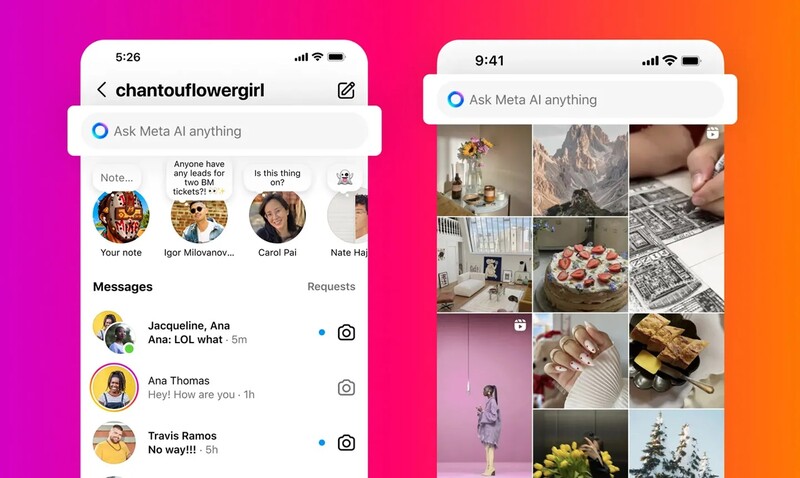Don’t get distracted by Mark Zuckerberg’s new look — Meta’s AI news is worth paying attention to.
What happened: Meta announced Llama 3, a new AI model that now powers the Meta AI chatbot. First launched in the U.S. last fall, Meta AI is now available in 13 more countries — including Canada — and users can access it right from the search bar in Facebook, Instagram, WhatsApp, and Messenger, as well as a new stand-alone website.
- Meta AI can pull in search results from Google and Bing, which could help Llama provide more current info and answers than the competition.
- Llama 3 is open source, so developers can use it to build their own AI tools.
- In the U.S., Meta is also rolling out a beta version of real-time image generation, so the image will update as users change their text prompt to the chatbot.
By the numbers: Llama comes in two versions: one with 8 billion parameters and one with 70 billion. Parameters are connections between data points that decide how an AI behaves — the more parameters an AI has, the better it understands instructions and adapts to different situations.
- Like every AI launch, Meta had charts showing how Llama performs on various benchmarking tests, but those aren’t the most useful way to judge an AI model.
Why it matters: Meta touted Llama’s superiority to other models, but the real edge might be integrating it into some of the world’s most popular apps. Why use ChatGPT when you can use AI right from Facebook, Instagram, or WhatsApp?
- For now, Meta isn’t charging for advanced or enterprise AI capabilities, like OpenAI and Google do. The play seems to be keeping users within its apps for longer.
- If Meta beefs up its business-focused AI tools, like custom chatbots and ad creators, it could keep a key customer base from turning to the competition.
What’s next: A 400-parameter version is in the works, and Zuckerberg told The Verge that Meta is already thinking about Llama 4 and 5 — which it needs to do to keep up with new models in development at OpenAI and Google.
